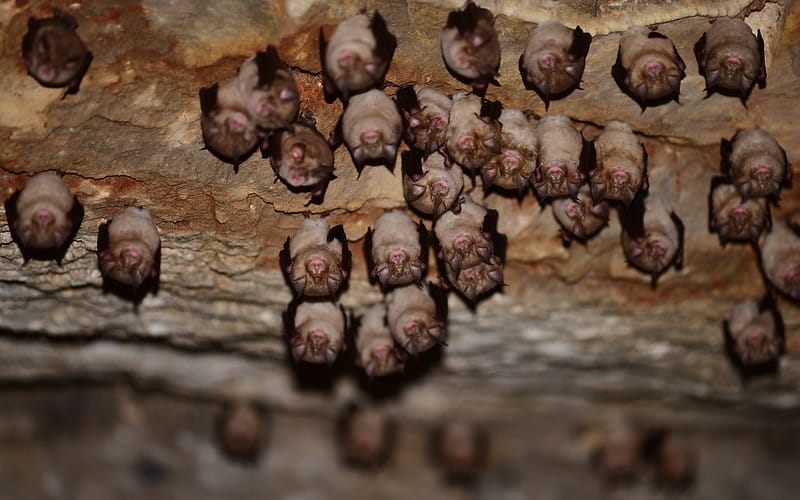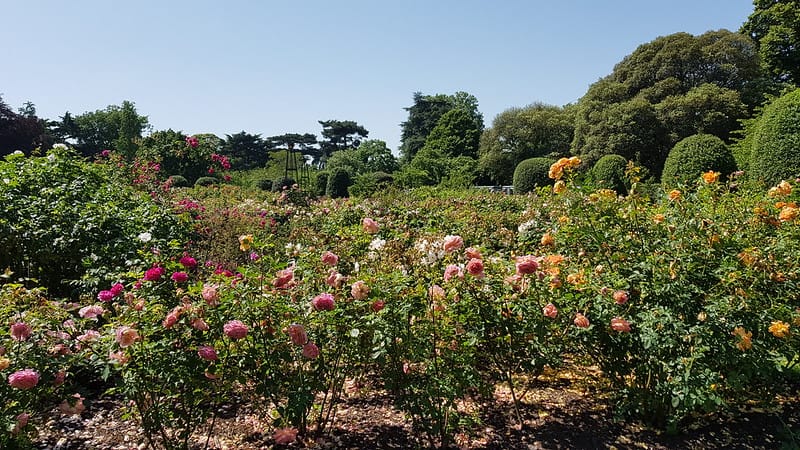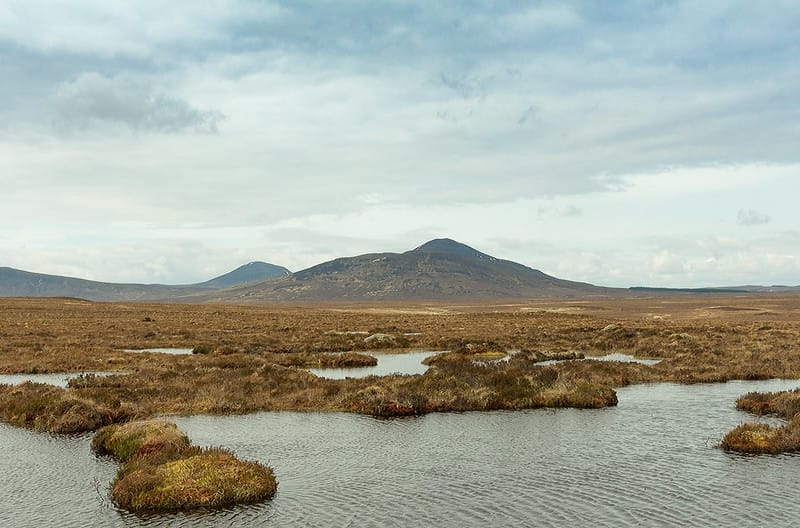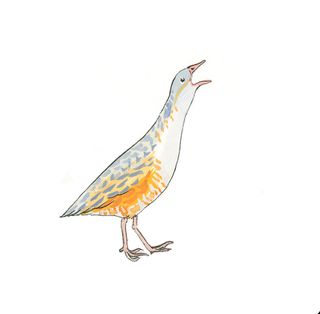
Starving Bats & Dartmoor Grazing
The latest news on nature and conservation in Britain.
Don't forget! There are only a few days left to claim our reduced membership offer. You have until the end of July to get 30% off an annual subscription. Click here to sign up – and feel free to share the link with your friends, colleagues and on social media.
National news
Weather | The unseasonably wet weather of this year’s spring and summer is harming British species, according to conservationists. In particular, groups across Cambridgeshire, Norfolk, Worcestershire, Essex and South Lancashire have reported an increase in the number of starving or underweight bats needing to be rescued. They believe this is partly due to the declining insect populations, exacerbated by the wet weather, which means that bats have to travel further to find food. However, the Bat Conservation Trust cautioned that there are ‘always natural fluctuations’ in wildlife populations, and that this year’s weather can only be speculatively linked to the increase in bat rescues. The Guardian reported the news. Elsewhere, BirdGuides reports that the poor weather is causing increasing problems for European nightjars, while presenter Jeremy Clarkson has said he is ‘alarmed’ by how few butterflies he has seen on his Cotswold property. One species is enjoying the damp, however: the Guardian reports that Scottish midges are thriving this summer.
Pesticides | The Conservative government did not carry out a legally required impact assessment before approving the use of a banned pesticide, documents have revealed. Defra granted emergency approval of the neonicotinoid on sugar beet earlier this year, but a briefing document obtained by ENDS via a freedom of information request shows that officials sidestepped the required assessment of the impact on protected nature sites, on the basis that it would be too difficult. A teaspoon of the pesticide is enough to kill 1.25 billion bees, and the Wildlife Trusts previously referred to its use as a ‘death blow to wildlife’. Elliot Chapman-Jones, head of public affairs at the Trusts, said the omission was ‘completely unacceptable’, adding that the new government ‘should learn from its predecessor’s mistakes’ and uphold its promise to end the use of the pesticide. The Guardian reported the news.
Nutrients | The Labour government is set to change the environmental regulations known as ‘nutrient neutrality’ rules in order to expedite housebuilding. Nutrient neutrality rules require developers to limit river pollution – especially from phosphates, nitrates and sulphates – by restricting housebuilding, or else to offset any nutrients that enter the watercourse elsewhere in the catchment. In a letter to environmental groups, housing secretary Angela Rayner and environment secretary Steve Reed said they planned to overhaul the regulations since ‘we know that the status quo is not working’. They are not proposing to scrap the regulations, but rather to introduce a new mechanism for offsetting, under which the government would take a payment from developers and use it to help reduce pollution, rather than requiring housebuilders to create site-by-site offsetting schemes. Natural England chair Tony Juniper said the shake-up would be a ‘more efficient and more strategic way’ of implementing the rules, while CEO of the Wildlife and Countryside Link, Richard Benwell, took to X to agree that the current implementation is suboptimal and to welcome the government’s invitation for discussion with green organisations. The BBC, the Financial Times and the Times reported the news.
In other news:
- Twenty large-scale nature recovery projects across the UK will receive a share of £150m from the National Lottery Heritage Fund, reports the Evening Standard.
- The Farmers’ Union of Wales has said that Welsh farmers are willing to work with ‘any politician’ to reach a solution for rural living, reports the BBC.
- Labour MP Mary Creagh, whose election campaign promised a ‘fairer greener future’, has been appointed nature minister, reports ENDS.
- Conservationists are concerned that pump hydro storage schemes on Loch Ness could be killing wild salmon, reports the Scotsman.
- A report by British Berry Growers has found that almost half of growers are at risk of going out of business due to rising costs, reports the Independent.
- The Environment Agency has published its annual report on the performances of water companies, showing the majority of companies continue to underperform. The Times and ENDS covered the news.
- The Liberal Democrats believe that sewage dumps in Scotland are ‘hugely underestimated’ and are calling for an urgent update to the system, reports the Times.
- The record for the world’s hottest day has been broken twice in one week, according to the European climate change service, Copernicus. The BBC covered the news.
- The government’s climate change plan is being challenged at the High Court in a landmark case, report Reuters and the Guardian.
Across the country
Dartmoor | Campaign group Wild Justice has written a pre-action legal letter challenging the overgrazing of Dartmoor’s commons. The letter to the Dartmoor Commoners’ Council – the body responsible for managing livestock levels – calls for commoners to be ordered to reduce their stock on all SSSIs where grazing pressure is a problem. This applies in particular to sheep in winter, when grazing prevents sensitive habitats from recovering. In a statement, Wild Justice said: ‘When over 90% of [Dartmoor’s] internationally important protected heaths are in unfavourable condition, and when we know that’s because of grazing pressure, then something’s got to change.’ The letter signals the start of a High Court process: if DCC fails to send a satisfactory response, Wild Justice will apply for a judicial review of the organisation’s failure to maintain and enhance the protected sites. ENDS reported the news.
Galloway | The Scottish government has proposed Galloway as the location for the country’s next National Park, citing its diverse landscapes, outstanding biodiversity and rich cultural heritage. Rural Affairs secretary Mairi Gougeon said the proposal was ‘community led’ and would benefit both the local economy and the environment. Now, NatureScot will lead a consultation with local communities to gauge support and discuss a proposed boundary. Reactions to the decision have been mixed: while campaigners say it is ‘fantastic news’, NFU Scotland has said the designation could create problems for housing, transport, access and planning. Author Patrick Laurie expressed concerns that the process had felt ‘surprising and inorganic’. The BBC, the Times and the Herald reported the news.
Skye | Ancient mammals, which lived among dinosaurs, grew more slowly and lived for longer than their modern-day counterparts, according to analysis of two rare fossils found on Skye. The shrew-like Krusatodon could reach at least seven years, while today’s small mammals might live for as little as 12 months. Researchers used X-ray imaging to look through the rock and study growth patterns in their teeth, much like counting tree rings. The Krusatodon lived around 166 million years ago, when Skye would have been a sub-tropical landscape with warm seas and dense forests. The findings were published in Nature and covered by the BBC and the Independent.
Elsewhere:
- The Freshwater Habitats Trust has launched a major landscape restoration project involving more than 90 landowners in Oxfordshire and Buckinghamshire.
- A five-year project by the South Devon National Landscape is boosting coastal wildflower meadows to help populations of 60 threatened species, reports the BBC.
- Natural Resources Wales has announced an ambitious project to restore the Wye River’s upper catchment area by reducing sediments and pollutants entering the water.
- RSPB Saltholme reserve in County Durham has celebrated identifying its 500th species of moth: the nationally scarce Reed Minor, reports the BBC.
- A company developing the use of drones in agriculture says the technology can ‘complement’ traditional farming methods and benefit soil health. The BBC spoke with a Norfolk farmer who has adopted drones for his regenerative farm.
- Locals are concerned by the RSPB’s plans to build houses at the Winterbourne Downs reserve in Wiltshire, which is a famous site for stone-curlew, reports BirdGuides.
- Public health officials have warned that elevated levels of harmful bacteria have been found at Wales’ first official river bathing site, reports the BBC.
- A memorial will be created to commemorate the mass stranding of 77 pilot whales on Orkney, with a skeleton displayed at the local heritage centre, reports the Times.
- The Devon Wildlife Trust is working with farmers in North Devon to utilise cow collars, allowing them to introduce targeted grazing on wildlife-rich Culm grassland.
- Members of the Colchester City Council’s Labour group have written to the defence secretary after skylark nests were allegedly mown over earlier in July, reports the BBC.
- Wild bee orchids have been spotted flowering on the chalk meadows at Spurn Point reserve in Yorkshire, three decades after they were last seen there.
- Anglers are being threatened on Welsh rivers by illegal poachers, according to a fishing group in Gwynedd. The BBC reported the news.
- The Badger Trust is holding a demonstration after discovering that almost 28,000 badgers are marked for culling in areas including Staffordshire and Shropshire, reports the Shropshire Star.
Reports
Farming | The government must significantly increase the nature-friendly farming budget if it is to meet its climate and nature targets, according to a report commissioned by the RSPB, National Trust and the Wildlife Trusts. The analysis estimated that investment in nature-friendly farming would need to increase to £5.9bn per annum for at least the next ten years to meet the legally binding targets. The report claims to be the most accurate estimate to date, including – for the first time – analysis of costs for different farm types and sizes. The current annual agricultural budget is £3.5bn, of which around 20-25% is currently spent on agri-environment schemes which benefit nature. Farming UK reported the news, and Nation Cymru covered the research from a Welsh perspective. Meanwhile, a report by the National Audit Office has examined the value for money provided by Defra’s Environmental Land Management schemes. It found that the organisation’s ‘iterative’ approach is causing widespread uncertainty in the sector, and lacked ambition and urgency. Labour has confirmed it will not be changing the schemes despite the criticism, reports Farming UK. The Standard and the Telegraph also covered the report.
Kew | More than half of Kew Gardens’ 11,000 trees could be at risk due to climate change by the end of the century, scientists have found. Researchers combined weather station data, climate projections, global tree data and details on Kew’s collection to find out which trees were most vulnerable. They found that species including English oak, beech, silver birch and holly would struggle to cope with hotter temperatures and extended dry spells. To address this, they have started to plant more species and source native seeds from hotter and drier countries. The report, called Planting for the Future, calls for a broad rethink of how parks and urban spaces across the UK are designed as climate change worsens. The BBC covered the research.

Food | Synthetic meat is widely touted as a way to cut emissions, but some places – including Italy and Florida – have already banned its development, claiming it threatens traditional farming. But this doesn’t have to be the case, according to a report by the Royal Agricultural University. Researchers spoke to 80 British farmers, finding that many were already engaged in the possibilities of the budding industry. These included supplying farming byproducts or raw materials to the technology process, and even hosting production units on farms. Their main concerns focused on social issues, such as large companies controlling the food systems, rather than the direct impacts on their businesses. The BBC covered the research. Meanwhile, a report by the Wildlife Trusts, Sustain and the Soil Association calls on the government to stop relying on imports and to double the land used to grow fruit and vegetables.
Science
Fish | In the early 13th century, Gerard of Wales referenced Pembrokeshire as a region ‘rich in wheat, with fish from the sea and plenty of wine for sale’. That no longer seems to be the case. A study in Fish and Fisheries uses a range of historical sources – including fisheries reports, nautical charts, naturalists’ reports, recipes and newspapers – from the 13th to 20th centuries to document the long-term trajectories of fish found off the coast of Wales. The researchers uncovered widespread losses, including the absolute decline of a once superabundant herring fishery, with impacts reaching far through the food web. The restoration of this lost oceanic world may be neither practical nor desirable, the authors write, but failing to recognise the ocean’s lost bounty ‘may increase the risk of further degradation and ecosystem management failures.’
Hedgerows | How can you measure the biodiversity of a hedgerow? Listen to it, according to a study in Biological Conservation. Researchers used acoustic monitoring to measure bird and bat vocal activity in 24 hedgerows across England. They found that young and old hedgerows were noisier than new ones, with a particular uptick in activity ten years after planting. Structure was also important, with higher levels of activity present in hedges that were more connected, diverse and closer to trees. Such information could prove vital as European countries include hedgerow creation goals within their agri-environment schemes; the authors argue that results-based payments could be linked to acoustic results, incentivising effective planting among farmers.
Insects | A long-running study in the Sussex Downs has found a 37% decline in insect abundance since the 1970s. The study was initially set up in 1968 to investigate grey partridge declines, and is now the longest-running monitoring project focused on the impacts of arable farming on fauna and flora. At the same time every year, researchers visited five cereal fields to collect a sample of insects, amassing a total of 2.98 million invertebrates. They found that, overall, 47% of invertebrate taxa declined in abundance, sometimes dramatically – aphids, for instance, had dropped by 90%. Notably, the largest declines were in the first decade of the study period, when both pesticide use and field size were increasing. The authors concluded that crop type and changing weather patterns due to climate change also impacted numbers. The findings were published in Insect Conservation and Diversity.
Driftwood
Flow Country | If all goes to plan, UNESCO will soon grant world heritage status to the Flow Country: a million acres of bogland in Caithness and Sutherland, home to rare species and responsible for storing twice as much carbon as all of Britain’s woodlands combined. The future of this area was not always so rosy, however. In the Observer, environment correspondent Geoffrey Lean writes about how, fifty years ago, the beautiful expanse was ‘being lost under dense rows of alien conifers’ as a result of tax breaks, destroying up to one sixth of the area. Many can claim credit for ending this ‘state-sanctioned scandal’, Lean writes, from radical Scottish conservationists to the Observer newspaper itself, where Lean and his colleague George Rosie published an exposé revealing the names of the celebrities benefitting from the tax breaks.

Swimming | Last week saw the Paris mayor Anne Hidalgo take a dip in the Seine to prove that it is safe to swim in for the Olympics. In a feature for the Conversation, PhD candidate Lucy Janes digs into the buried history of urban swimming in Glasgow, and its connection to the modern open air swimming movement. Prior to its industrialisation as a busy shipping thoroughfare and sewage depository, the Clyde was a popular swimming spot: the city authorities installed diving boards at Glasgow Green, and the Swimming Society held races for national medals. The era of Clyde swimming eventually ended as pollution increased and indoor pools grew in number, but now many cities are creating official swimming zones in cleaned-up waterways, with Glasgow among them. Janes writes: ‘Knowing how past city dwellers exerted their rights to swim could help to shape the futures of urban waterways.’
Names | In the Guardian, science editor Robin McKie writes about a momentous vote in the world of botany to reform nomenclature rules. Last week, more than 100 researchers took part in a six-day session at the International Botanical Congress in Madrid to discuss the elimination of racially offensive names. The result was that the names of more than 200 species that contain the word caffra – which originates in insults aimed at Black people – will be replaced by the word affra to denote the species’ African origins. The session also agreed to create a committee which will vote on names given to newly discovered species – although a more general move to remove other controversial historical labels was not agreed. Sandy Knapp of the Natural History Museum, who presided over the session, said the result was ‘an absolutely monumental first step in addressing an issue that has become a real problem in botany’.
Further reading:
- In the Conversation, lecturer James Canton looks at how new nature writing, such as the Going to Ground anthology, is addressing tricky aspects of the climate crisis.
- In a Guardian interview, renowned British biologist Rosemary Grant discusses her life’s research examining evolution on the Galápagos Islands.
- Beyond the conspiracy theories, could geo-engineering really help save the planet from the climate crisis? A BBC In-depth article investigates the topic.
- A feature in the Telegraph lays out why plastic grass is doubly evil: it devalues your house and damages the environment.
- After the sentencing of five Just Stop Oil activists, an opinion piece in the Guardian by campaigners Chris Packham and Dale Vince argues that the activists do not belong in prison, while a Conversation piece posits that the sentences are a ‘logical outcome’ of Britain’s authoritarian turn against protest.
- A BBC article asks what Welsh farming might look like ten years in the future.
- A feature in the Conversation explains the implications of the discovery that tree bark absorbs methane.
Happy days
Bees | Hundreds of wildflowers planted by volunteers in Walsall are attracting rare bees to the area. The planting is part of a larger project to restore and connect areas of heathland on the fringes of the urban West Midlands, with the aim of providing support for species which rely on the disappearing habitat. In particular, the project is targeting the Tormentil Mining Bee, a priority species which relies on ‘bee beaches’: banks of soft soil where they burrow to create their nests. Sixty volunteers planted more than 400 plug plants of the tormentil, harebell and cat’s ear species earlier this year on Pelsall Common, where they are now starting to flower and are being visited by foraging bees.
Subscribe to our newsletter
Members receive our premium weekly digest of nature news from across Britain.
Comments
Sign in or become a Inkcap Journal member to join the conversation.
Just enter your email below to get a log in link.








